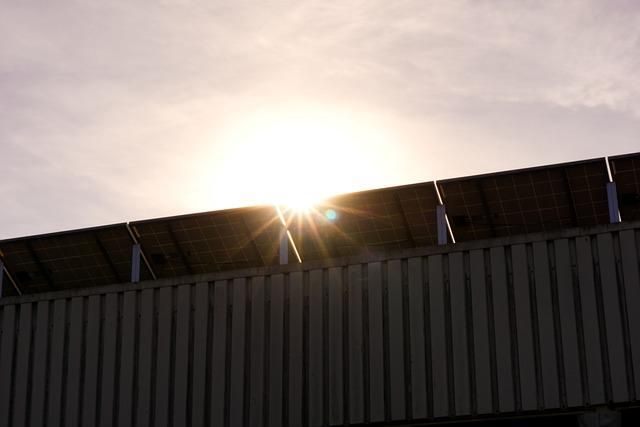A hot summer with lots of sun may be optimal vacation weather. But photovoltaic systems tend to like it a bit cooler with slightly overcast skies. "The efficiency of the panels drops when they get too hot", says Markus W. Voigt, CEO of aream Group. "However, one type of power generation in particular suffers even more."
Basically, the heat effect on solar panels is fairly easy to calculate: for every degree the panel gets warmer, the efficiency drops between 0.35 and 0.45 percent. "This refers to the most commonly used silicon-based modules", Voigt says. "In that respect, it's clear that module performance will always be higher on a nice spring day than on a hot summer sunny day." The exact loss of power depends on the type of modules, but also on other factors.
For example, the tilt angle of the panels also plays a major role. "Especially with systems mounted directly on roofs, two effects come together here," says Voigt. "On the one hand, the panels often heat up much faster because of the small distance to the roof." On the other hand, the angle to the sun is predetermined by the roof pitch. "Here we see that especially the higher sun angles in summer are often less well captured than the somewhat flatter ones in spring and fall", Voigt says.
While private systems on house roofs often cannot be designed any other way, professional ground-mounted systems are already optimized for sun positions and ventilation during the planning stage. "A steady wind, is the best cooling", Voigt says. "That's one reason why sites in northern Germany can deliver the same or similar output as those in the south, despite fewer hours of sunshine."
Variations due to heat are always included in the calculation for power generation. "However, in very hot summers like the current one, it can happen that not the panels but the transfer stations with large transformers get too hot", Voigt says. "In these cases, the solar farms are shut down to conserve infrastructure."
"Actual weather conditions therefore contribute more to power fluctuations than pure heat", Voigt says. "For example, panels under a slightly cloudy sky actually deliver more power." This is because white clouds scatter more light toward the earth and more power arrives. "A hazy sky, on the other hand, scatters light diffusely, resulting in a loss of power", Voigt says.
Overall, the reduction in power caused by heat is no more than five percent. But despite the circumstances that lead to lower electricity output, renewables are also much more robust in this respect than conventional power plants. "The latter need immense amounts of water to cool their plants, which they take from rivers", says Voigt. "And not only do the rivers currently carry little water, but the return of the warm cooling water to the rivers is always limited in the summer so as not to harm the biotopes." Just recently, French nuclear power plants had to be shut down again for these reasons. "The price of electricity rose rapidly on the markets there as a result", Voigt said. "Renewables are much more predictable and stable in that respect."
PRESSEKONTAKT:
Leandra Kiebach
T: +49 (0)211 30 20 60 4-2
E: lk@aream.de
